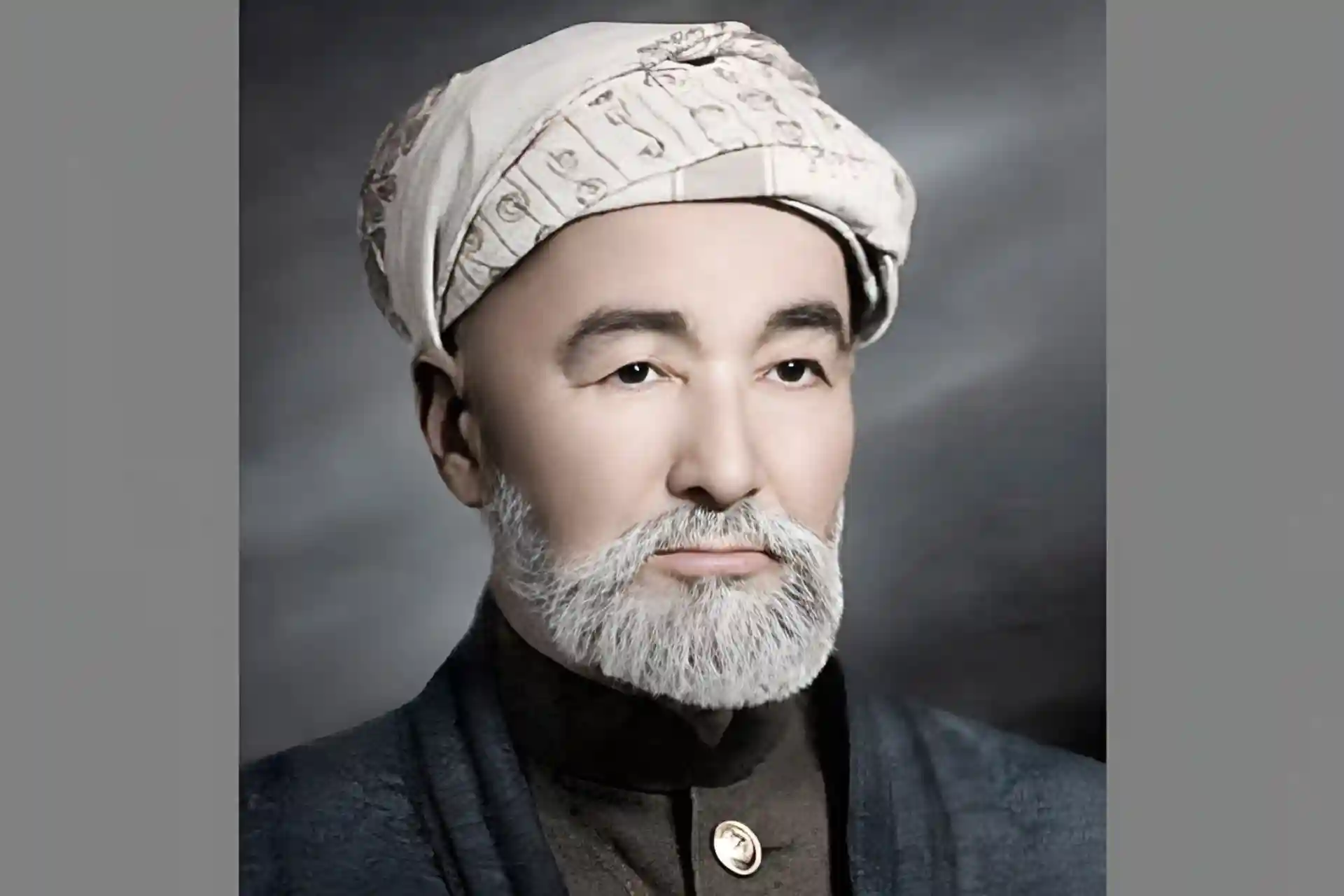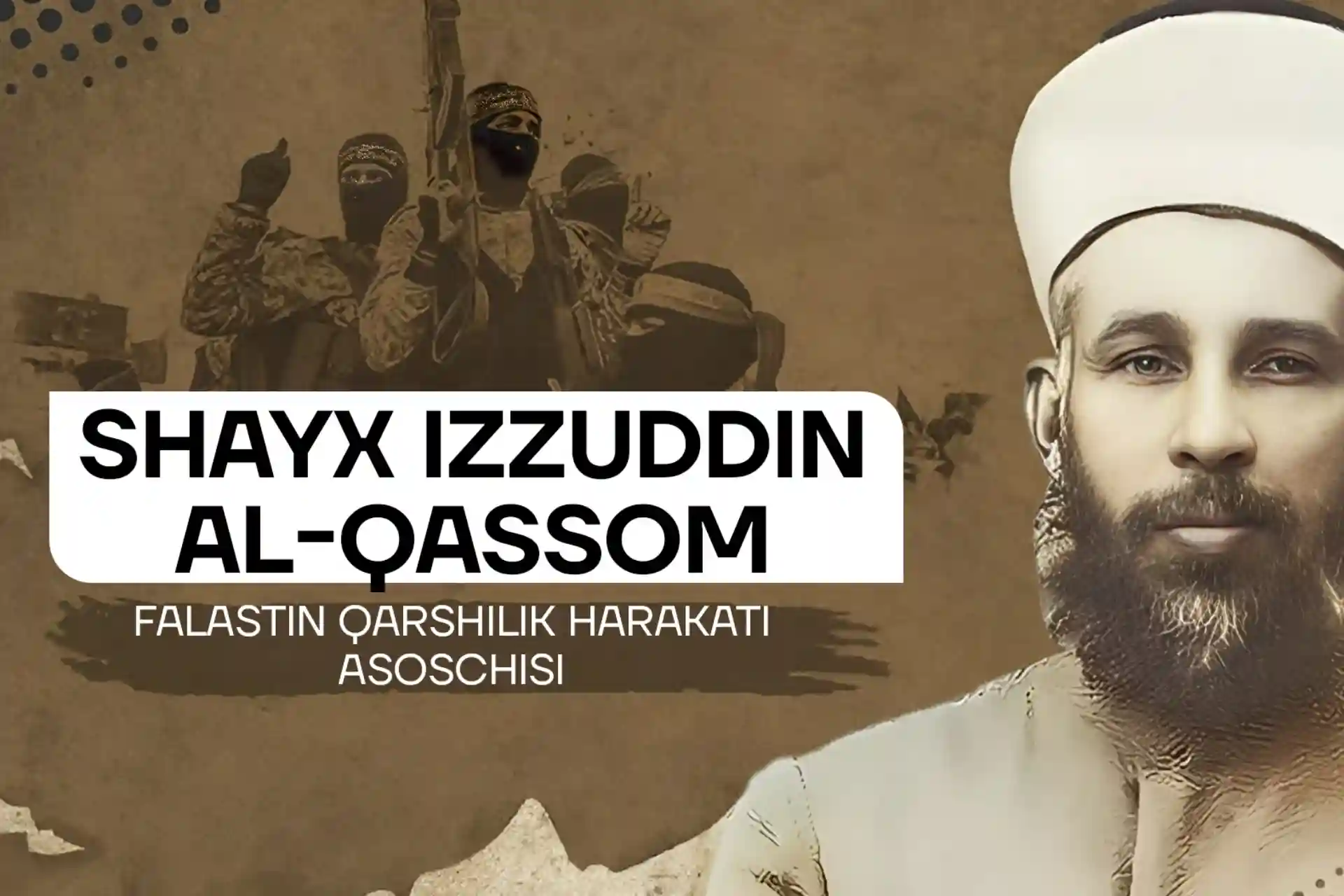06.12.2023 01:57
5516
Alihontura Soguni (1885-1976)
Alikhontora Shakirkhontora's son Soguni was born on March 21, 1885 in Tokmok, Turkestan. The old name of this city is Bolosogun, which Alikhantora attributed to him when choosing his nickname. Since his father was an educated man of the era of Shakir Khantora, he sent his son to study at first to the "Mir Arab" madrasa in Bukhara, and later to one of the darulfununs in Madinai Munawwara. Young Ali Khan, who is naturally intelligent, quick-witted, and hungry for innovation, will become a mature specialist in recitation, interpretation, hadith, fiqh, nahw, balagot, logic, medicine, history, poetry, geography, poetry, prose and other subjects. After graduation, he gets involved in social and political activities in the country.
In 1914, young Alikhontora came under the control of the Russian tsar's secret police because he opposed the policy of the colonizers to employ representatives of the local population. In 1916, after the people's uprising was brutally suppressed, he felt the danger of staying in the country and had to go to Kashkar (China) as a political emigrant. Later he went to Gulja, another big city of East Turkestan.
Alikhontora continues his social and political activities in East Turkestan and joins the people's national liberation movement. He was arrested by the Chinese authorities in 1937 and sentenced to life imprisonment for actively promoting the ideas of liberating the country from the tyranny of the invaders among the people. In 1941, he was released as a result of a judicial review. On November 12, 1944, the Republic of East Turkestan was declared, and Alikhantora was elected as the chairman of the Provisional Revolutionary Government. As the initiator of the creation of the national army, its arming and strengthening of its composition, he was appointed as the commander-in-chief of the army and was given the high military rank of "marshal" .
The devotees of East Turkestan, chief Ali Khantora, will start a national struggle to liberate the country from Chinese tyranny. On November 7-10, 1944, the armed uprising of the Muslim East Turkestans won in Gulja. In a large area between China and the Soviet Union, the movement to establish the Republic of East Turkestan, which unites the Uyghur, Kazakh, Uzbek, Kyrgyz, Tatar and Dongan peoples on the basis of strong trust and religious brotherhood, begins. A hundred thousand Chinese army of Chiang Kai-shek and the Kuomintang is defeated in a series of fierce battles.
The Muslim state of Eastern Turkestan, which appeared in the wake of the Soviet empire and was inevitable to be recognized by many countries, frightened the autocratic rulers. For this reason, as a result of the treacherous plan of the Soviet government and the geopolitical games carried out with deceit, Alikhantora was brought to Tashkent instead of Gulja on June 28, 1946. Bahmanyor Shakirov, one of the descendants of the scientist, writes, "People ask: 'Where is the President?' The Soviet embassy gives false answers to these questions. At that time, tens of thousands of self-sacrificing patriots and several million free people of East Turkestan remained depressed. My grandfather and his family first lived in Markazqom Park. It turns out that Usman Yusupov was personally entrusted by the "father of nations" (Stalin) to watch over Marshal. Thus, a stubborn person who is forced to give up active politics, whose heart is filled with sadness, longing, pain, but who has not given up his beliefs and ideology in the slightest, plunges into scientific research.
In 1959, Alikhontora Soguni finished writing "History of Muhammadi", which is the product of many years of creative work. But the Soviet regime does not allow this work to be published. Only after our country became independent, this unique work dedicated to the sayings of the Prophet reached the hands of readers. It is no exaggeration to say that the appearance of such a work in this country, which has been dominated by secularism for many years, created a spiritual revolution in the minds and hearts of Muslims.
Alikhantora Soguni was the first to speak the truth about the great general and statesman Amir Temur. In 1967, during the "full of power" of the Soviet regime, his work "Timur Tuzuklari", which he translated from Persian, was published in the "Guliston" magazine, one of the new editions of the republic. Acquiring a printed issue of Traps was the ultimate triumph at the time, and reading it required even greater courage. But the "vigilante" regime stopped the publication of this "dangerous" work, and those involved in this work "ate" the consequences. The work was published in its entirety only in the years of independence.
After that, the historical-journalistic work "Turkestan Sadness" written by the scientist for seven years was published. In it, Soguni evaluates the many events he has witnessed in his life with a wise eye, and pours out his deep pains due to the sadness of the nation, the country and the religion. In addition, the scholar of tabi-nazm organized his poetic works, created the book "Devaniy Soguniy" and wrote the work "Shifa'ul-ilal" dedicated to medicine. He translated several books from Turkish and Persian into Uzbek.
Tashkent intellectuals and people of virtue loved Alikhantora Soguni as a spiritual teacher, a learned sage, and always fell in love with his conversation. Even though the existing regime tried to keep the scientist away from people and keep him under house arrest, his house was always a welcome place where fans were sought after. Scholars of religion and science had become the daily life of the Tora household. Famous geological scientists Habib Abdullaev, Gani Mavlonov, Qazi Fazilkhoja, Sheikh Ziyauddin Khan Bobokhanov and others enjoyed the talks of Alikhontora.
Although the author of these lines was not lucky enough to meet Alikhantora in person, I witnessed several events related to him. One of them, one of Alikhontora's loyal students, Sirojiddin, met with teacher Jahangirov. At that time, our beloved Sirojiddin aka was the head of the Kokaldosh madrasa, and since the magazine I was working for temporarily moved to this madrasa building, we met and talked with him every day. One day, during a conversation, Sirojiddin brother Alikhan said that he had recorded some beautiful conversations of this person when he was taking a lesson from the net. I immediately showed interest and wanted to get acquainted with that conversation. The next day, Sirojiddin brought the text of the conversation, which was written in small letters in the students' notebooks. In fact, Alikhantora's lectures in front of the students were very meaningful and full of wisdom. With the permission of the teacher, we decided to present the interview to the readers of the magazine. This article, titled "Peace of Mind," was well received. In this short conversation, the potential, knowledge of the famous scientist, especially his knowledge of the spiritual world of man was clearly visible. To be clear, we will suffice with this single quote from this article:
"The life of a believer consists only of calmness. Therefore, when the soul is surrendering, it is called "O calm and quiet soul". As a reward for this, he will be rewarded with heaven. Because heaven is a place of calmness, tranquility, rest and relaxation. He received this great reward because he was in the remembrance of God in his life and did righteous deeds for His pleasure. Now he will be in the arms of eternal peace and tranquility... A person who served the religion will not pass away from the world saying "attang". A believer who studies the Word of God and engages in His dhikr does not regret that his time was wasted. A person who studied and taught the hadiths of the Messenger of Allah, may God bless him and grant him peace, and raised his children to be righteous people, did not regret his journey to the hereafter. He closed his eyes with a calm heart, a peaceful mind, and a smile on his lips. Is there a greater blessing and greater happiness for a believer?!
The second incident was told by Dostmuhammad Domla Bodari, another faithful student of the Torah: "At the end of his life, the teacher was allowed to mix with people, but speaking in their presence was still forbidden. One day Toram and I went to Aqlon for a wedding ceremony. When people began to disperse one by one after eating and drinking, the teacher said, "Don't leave for a minute!" they exclaimed. Those who were walking towards the door stopped in their places, and those who had not yet sat down. Having swallowed what the teacher was saying, they could not speak to the people because they were overwhelmed, so they began to speak in their characteristic soft but determined voice. On that day, he explained Surah Asr of the Holy Qur'an for half an hour with such excitement and pain that there was no one left in the wedding hall who did not cry. Those conversations of Toram were the most wonderful sermons I have ever witnessed."
At the end of the winter of 1976, His Holiness Alikhontora Soguni, a scientist and writer, a great public figure, who spent his whole life fighting for religion, nation, and homeland, showed great selflessness in the way of introducing religion to people, left the mortal world and joined his Mavlosi. According to his will, he was buried next to his dear friend, judge Fazilkhoja. Because Qazi Fazilkhoja was very close to Domla Alikhantora Soguni. This incident is a good example of how close they were: when Qazi Domla realized that his journey in this world was getting old, he bequeathed that "If my funeral will be read by His Holiness Alikhantora Soguni...". This will of the scientist was fulfilled without words. Shortly after that, His Holiness Alikhantora Soguni died at the age of ninety-one. His will was as follows: "Bury this weak servant in the cemetery of Sheikh Zainiddin Baba next to Mullah Fazilkhoja". This will was fulfilled without words. The graves of two best friends, who always walked side by side in the world, were in the same place. In the years of independence, in order to perpetuate the memory of Alikhontora Soguni, a secondary school in Yakkasaray district of Tashkent, a neighborhood in Chilonzor district, and a street in Shaikhontohur district were named after him.
Ahmed MUHAMMAD, may God have mercy on him


